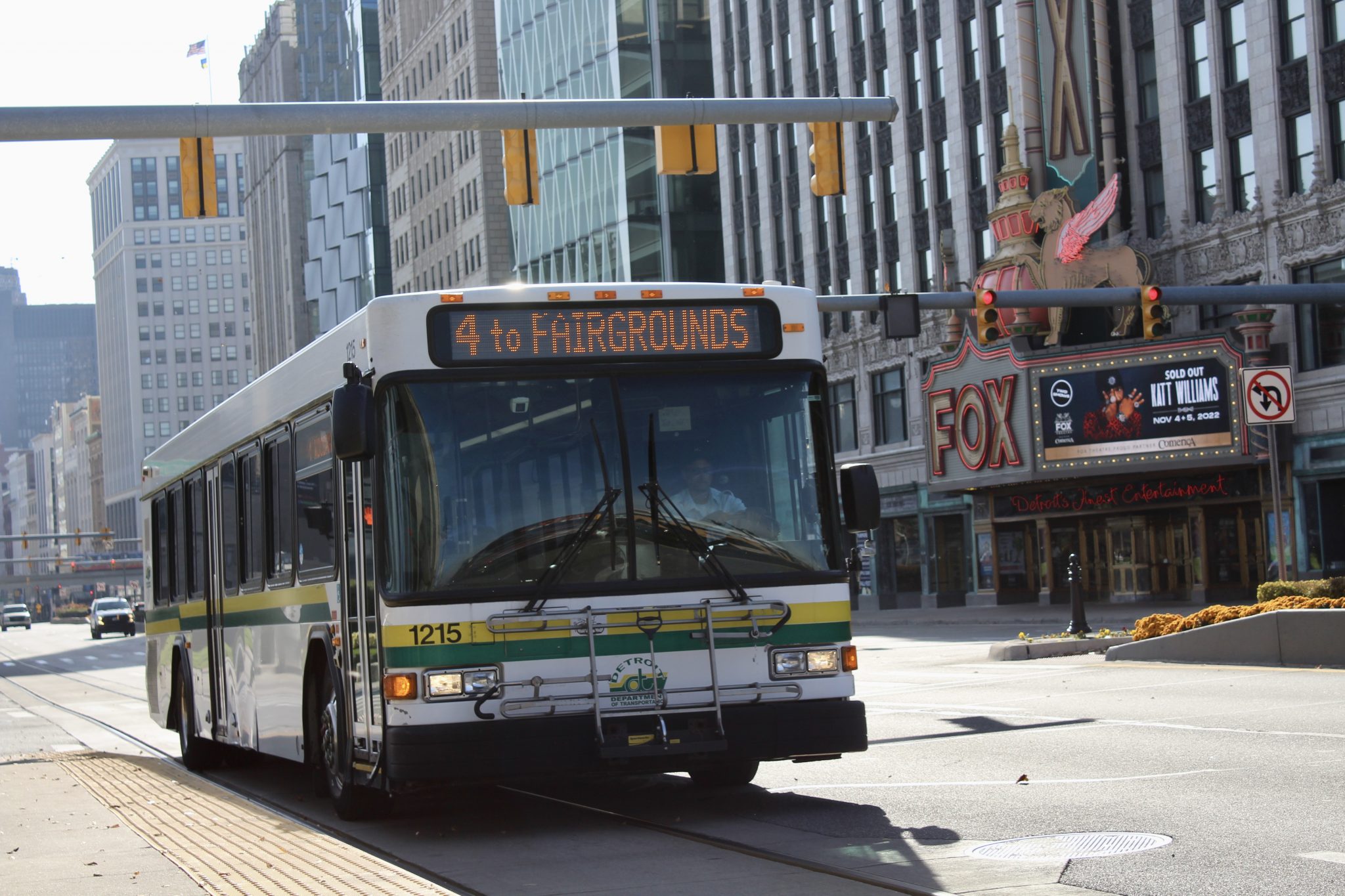Detroit Today: Reparations task force members discuss redressing harms done to Black Detroiters
A 13-member group is currently exploring the needs and possible outcomes for reparations in the City of Detroit.

DDOT bus travels northbound along Woodward Avenue on Friday, Nov. 4, 2022, in downtown Detroit.
The idea of reparations dates back to the period after the Civil War — when some Congressional representatives advocated for giving formerly enslaved people various assets. It came around again in the 1960s, with civil rights activists, like Martin Luther King Jr., supporting reparations to counterweight the additional damage done by segregation.
With the conversation continuing in recent years, there are some instances of reparations being enacted at the local level.
Small towns like Amherst, Massachusetts and Evanston, Illinois have implemented housing investments and a new bank — dedicated to serving local African American residents in their respective towns.
A number of big cities are exploring the issue as well — including Detroit, where 80% of voters approved a 2021 measure, creating a 13-member task force to study and address the harm done to Black residents.
“I think for it to be holistic reparations, it needs to be an acknowledgement of the harm, some form of redress, and insurance that it won’t happen again.” — Lauren Hood, reparations task force co-chair
Listen: How reparations for Black residents could change Detroit, Michigan and the country.
Guests
Lauren Hood is a writer, city planner, community developer and co-chair on Detroit’s Reparations Task Force. She says reparations needs to be comprehensive in its approach.
“I think for it to be holistic reparations it needs to be an acknowledgement of the harm, some form of redress, and insurance that it won’t happen again,” says Hood.
Keith Williams is a Michigan Democratic Black Caucus chair and co-chair on Detroit’s Reparations Task Force. He says reparations is about redressing harms — including slavery, segregation and discrimination — that have specifically hurt African Americans who have lived in the city.
“I’m tired of driving down streets of degradation and poverty and things like that,” says Williams. “I’m tired of seeing my kids not getting educated to a point where they can close the wealth gap and education gap.”
Trusted, accurate, up-to-date.
WDET strives to make our journalism accessible to everyone. As a public media institution, we maintain our journalistic integrity through independent support from readers like you. If you value WDET as your source of news, music and conversation, please make a gift today.

